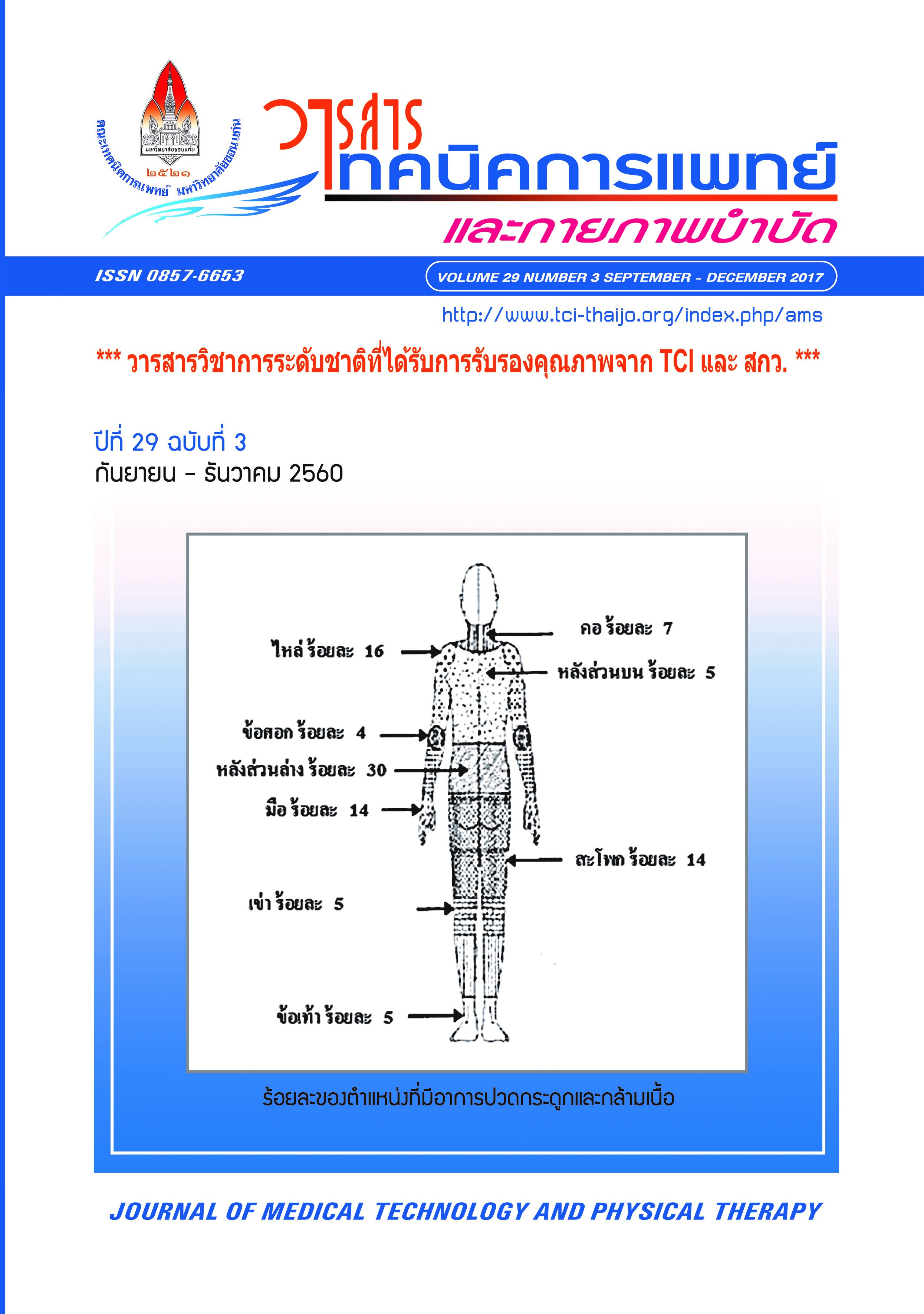The effects of home-based exercise program on quality of life and dyspnea in patients with moderate to severe chronic obstructive pulmonary disease in Buddhachinaraj Phitsanulok Hospital
Main Article Content
Abstract
Chronic obstructive pulmonary disease (COPD) is a respiratory disease characterized by chronic airflow limitation. Dyspnea is the symptom which limit physical activity in patient with COPD, contributing to reduced quality of life. Exercise is an important aspect of the treatment in COPD patients with a view to decrease symptoms of dyspnea and improves quality of life. The aimed of this study was to evaluate the effects of home-based exercise program on the quality of life and dyspnea in patients with moderate to severe COPD. Thirteen men with stable COPD participants, age ranges between 40 and 70 years old, were attended at Buddhachinaraj hospital home-based exercise program and received a booklet containing the exercise program to be performed at home, 3 times per week for 8 consecutive weeks. Before and after exercise program, patients were subjected to evaluated health-related quality of life by COPD Assessment Test (CAT) and Short Form Health Survey-36 (SF-36) and evaluated dyspnea by Modified Medical Research Council (MMRC) dyspnea score. The results showed that the home-based exercise program applied to the subjects have significant improvement on CAT score, MMRC score and three components of SF-36 score (physical functioning, role limitations due to physical problems and bodily pain) when compared to before received the program (p<0.05). In conclusion, Buddhachinaraj hospital home-based exercise program have shown decreasing of dyspnea and increase quality of life in patient with moderate to severe COPD. Therefore, this program should be developed and encouraged for using in all patients who have COPD.


